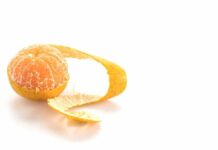
(Natural News) Tehrene Firman, content director of Brightly, a discovery platform for eco-conscious consumers, said that while unnaturally dyed foods and hormone-packed meats are the norm in the United States and not something most people think twice about, many of the foods Americans eat on a daily basis are actually banned in countries across the globe.
Here is a short list of food additives found in almost every type of American food – banned in Europe but legal in the United States.
Artificial Colors
There are nine certified color additives approved by the Food and Drug Administration for use in the United States, among them Blue No. 1, Blue No. 2, Red No. 40, Yellow No. 5 and Yellow No. 6, used to enhance the appearance of beverages, cereals, crackers, dessert powders, sauces, snack foods and many other products.
The consuming public is largely unaware that artificial food dyes are made from petroleum and have been banned in many countries. The Center for Science in the Public Interest (CSPI) released a report that says artificial food dyes pose a “rainbow of risks” – including everything from allergies to cancer, and consumption of artificial dyes has increased five-fold since 1955.
Red-40 (E129), also known as Allura Red, is banned throughout Australia, Switzerland, the United Kingdom and most of Europe. It is one of the most commonly used artificial food dyes in the U.S., found in beverages, candies, cheeses, meats and many other goods.
A study published in the journal Frontiers in Microbiology found that high consumption of Allura Red causes adverse effects on human health, including allergies, asthma, attention deficit hyperactivity disorder (ADHD), brain damage, cancer, cardiac disease, food intolerance, multiple sclerosis and nausea due to reaction to aromatic azo compounds.
Blue-1 and 2 (also known as Brilliant Blue FCF) are banned in France, Germany and Switzerland but are often found in U.S. cereals and ice cream. A study published in the Pakistan Journal of Pharmaceutical Sciences reported that Brilliant Blue can have cytotoxic and genotoxic effects and advised that caution must be exercised when using these food additives.
Yellow-5 and 6 (also known as Sunset Yellow FCF) are banned in Finland and Norway, but are still widely used in the U.S. Studies on Yellow No. 5 have shown that they induce generic damage. Yellow No. 6 has also been banned in Norway and is being phased out by the European Union. It is still being used in the U.S., even though this additive has been associated with negative side effects, like allergies, hyperactivity, runny nose and tumors in animals.
Azodicarbonamide (ADA)
Azodicarbonamide is banned in Australia, the European Union and the United Kingdom. In the U.S. it is used as a whitening agent in cereal flour and as a dough conditioner in baking, but it is also used in making flooring and yoga mats.
The “Concise International Chemical Assessment Document,” published under the joint sponsorship of the United Nations Environment Program, the International Labor Organization and the World Health Organization, revealed that azodicarbonamide is of low acute toxicity, but repeated or prolonged contact may cause asthma and skin sensitization and advised that physicians involved in worker health surveillance programs should be aware of the potential of azodicarbonamide as a human asthmagen.
WHO.int –
Olestra
Olestra is used in the U.S. as a fat substitute made from sucrose and vegetable oil – adding no calories, cholesterol or fat to food products because it is neither digested nor absorbed and is commonly found in savory foods, such as potato chips and other high-fat foods to reduce the amount of fat content.
Olestra has been banned in Canada and the U.K. because it has been found to decrease the body’s ability to absorb essential fat-soluble vitamins A, D, E and K and carotenoids.
A study published in the journal Alimentary Pharmacology & Therapeutics found that the occurrence of gastrointestinal symptoms, including abdominal cramping, “anal leakage,” diarrhea, gas and loose stools, after consumption of olestra under ordinary snacking conditions – comparable to that following consumption of triglyceride-containing snacks.
Potassium Bromate
Potassium bromate is banned in Canada, China and the European Union. It is used in the United States to strengthen the baking dough and to allow higher rising.
It is a category 2B carcinogen that is classified by the International Agency for Research on Cancer (IARC). Studies, including one published in the journal Research in Pharmaceutical Sciences have linked potassium bromide to cancer, gastrointestinal illness, kidney disease and thyroid complications.
Recombinant Bovine Growth Hormones (rBGHs)
The use of rBGHs is banned in more than 30 countries – Australia, Canada, Japan, New Zealand and almost all nations of the European Union (EU).
The use of recombinant bovine somatotropin (rBST) in dairy cows – a synthetic growth hormone used to increase milk production – has never been approved in the EU and was banned in 1999 due to concerns on animal health and welfare, food safety and quality and human health implications by potentially increasing the risk of breast, colon and prostate cancer, says the American Cancer Society.
Major U.S. Food Brands Have Different Ingredients In Other Countries
Interestingly, some U.S. companies like Mars and McDonald’s continue to use dyes for their products sold in the States, while distributing cleaner and safer food to their consumers in Europe. (Related: Food safety hypocrisy is in your face.)
Since Europe is much more strict over the ingredients in food than the U.S., it is no surprise that some of the products are different – depending on where you buy them. While M&Ms in the U.S. are made using artificial colors, they are still sold in Europe where there’s a ban or warnings against those additives – but only because the batches across the pond are made using natural colors instead, said Firman.
Watch the following video to learn about U.S. food additives banned in Europe.
This video is from the PureTrauma357 channel on Brighteon.com.
Sources:
- EatThis.com
- Assuaged.com
- FocusForHealth.org
- FrontiersIn.org
- PubMed.NCBI,NLM.NIH.gov
- WHO.int
- Wiley.com
- LWW.com
- QUB.AC.uk
- UCDavis.edu
- Brighteon.com
Important Notice: This article was originally published at www.naturalnews.com by Olivia Cook where all credits are due.
Disclaimer
The watching, interacting, and participation of any kind with anything on this page does not constitute or initiate a doctor-patient relationship with Dr. Farrah™. None of the statements here have been evaluated by the Food and Drug Administration (FDA). The products of Dr. Farrah™ are not intended to diagnose, treat, cure, or prevent any disease. The information being provided should only be considered for education and entertainment purposes only. If you feel that anything you see or hear may be of value to you on this page or on any other medium of any kind associated with, showing, or quoting anything relating to Dr. Farrah™ in any way at any time, you are encouraged to and agree to consult with a licensed healthcare professional in your area to discuss it. If you feel that you’re having a healthcare emergency, seek medical attention immediately. The views expressed here are simply either the views and opinions of Dr. Farrah™ or others appearing and are protected under the first amendment.
Dr. Farrah™ is a highly experienced Licensed Medical Doctor certified in evidence-based clinical nutrition, not some enthusiast, formulator, or medium promoting the wild and unrestrained use of nutrition products for health issues without clinical experience and scientific evidence of therapeutic benefit. Dr. Farrah™ has personally and keenly studied everything she recommends, and more importantly, she’s closely observed the reactions and results in a clinical setting countless times over the course of her career involving the treatment of over 150,000 patients.
Dr. Farrah™ promotes evidence-based natural approaches to health, which means integrating her individual scientific and clinical expertise with the best available external clinical evidence from systematic research. By individual clinical expertise, I refer to the proficiency and judgment that individual clinicians acquire through clinical experience and clinical practice.
Dr. Farrah™ does not make any representation or warranties with respect to the accuracy, applicability, fitness, or completeness of any multimedia content provided. Dr. Farrah™ does not warrant the performance, effectiveness, or applicability of any sites listed, linked, or referenced to, in, or by any multimedia content.
To be clear, the multimedia content is not intended to be a substitute for professional medical advice, diagnosis, or treatment. Always seek the advice of your physician or other qualified health providers with any questions you may have regarding a medical condition. Never disregard professional medical advice or delay in seeking it because of something you have read or seen in any website, video, image, or media of any kind. Dr. Farrah™ hereby disclaims any and all liability to any party for any direct, indirect, implied, punitive, special, incidental, or other consequential damages arising directly or indirectly from any use of the content, which is provided as is, and without warranties.








